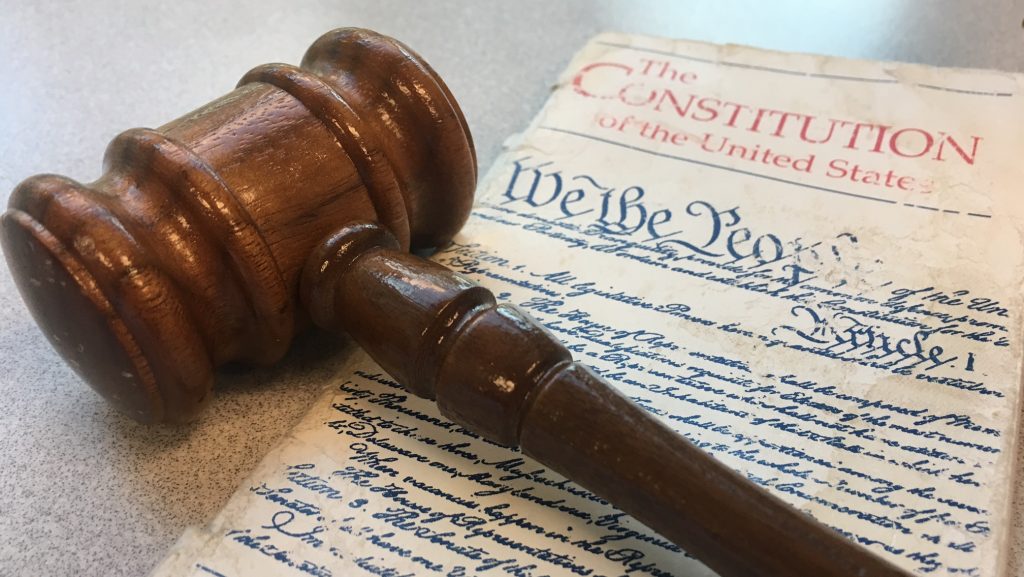Debate Impeachment Like a Constitutional Law Expert with Detroit Today’s Guide
High crimes and what now? You don’t need a law degree to sound smart when talking about impeachment with this guide sourced from experts on Detroit Today.

The first 10 amendments of the U.S. Constitution are known as the Bill of Rights.
Updated 9:00 am ET, December 19, 2019: This story has been updated to reflect the passage of the two articles of impeachment against President Donald Trump.
The U.S. House of Representatives impeached President Donald Trump this week.
The vote was a culminating moment for the inquiry, and makes Trump only the third president in U.S. history to be impeached, following former presidents Andrew Johnson and Bill Clinton (Richard Nixon resigned before he could be formally impeached). The two articles of impeachment relate to abuse of power and obstruction of Congress.
It’s a lot to unpack, and once the articles move to the Senate for a trial it will become an almost unavoidable topic of conversation.
But Detroit Today with Stephen Henderson has you covered so you won’t be caught flat-footed. Henderson has interviewed several legal experts in the run-up to this week’s vote. Here, we’ve pulled the sharpest takes, comments and responses from our guests to arm you as you delve into the choppy waters of impeachment — and the future of a presidency.
Did the President commit a crime?
Not necessarily, but that’s not the point of impeachment, says former U.S. attorney Barbara McQuade.
“Impeachment is not like a criminal prosecution. A president after being removed from office for impeachment could also then be prosecuted for a crime, but impeachment is not like a criminal prosecution. It says we gave you this trust as our president and you’ve done something to suggest that you are not fit to serve.”
Listen to former U.S. attorney Barbara McQuade’s full analysis.
What about bribery and ‘high crimes and misdemeanors?’
University of Michigan Law Professor Richard Primus believes Trump has committed bribery as well as high crimes and misdemeanors. But buried in the Ukraine scandal is the erosion of the integrity of American elections.
“He acts in his own interest, he is not confined by rules, he lies all the time. Worse yet is the attempt to corrupt the system of elections.”
Listen to Professor Richard Primus’ full analysis.
Congressional Democrats may have specifically avoided naming potential crimes, such as bribery, to build consensus, according to Brian Kalt, a constitutional law expert from Michigan State University and author of “Constitutional Cliffhangers: a Legal Guide for Presidents and Their Enemies.”
“Impeachment wasn’t designed with a two-party system in mind.”
The framers did, however, intentionally prioritize consensus with impeachment, unable to predict how tall an order that would be in the present divided political climate.
Listen to constitutional law expert Brian Kalt discuss impeachment strategy.
Will Republican politicians in the Senate or House turn against a Republican President?
It’s looking unlikely for now, says Reuters reporter David Shepardson. He believes this is in no small part due to Trump’s popularity among Republican voters. He presumes that if the president didn’t enjoy such committed support from constituents, that Republicans in Congress may not be so apt to back him.
“The president has done a pretty remarkable job of keeping the party together. It’s hard to see how this is going to shift Republican opinion.”
